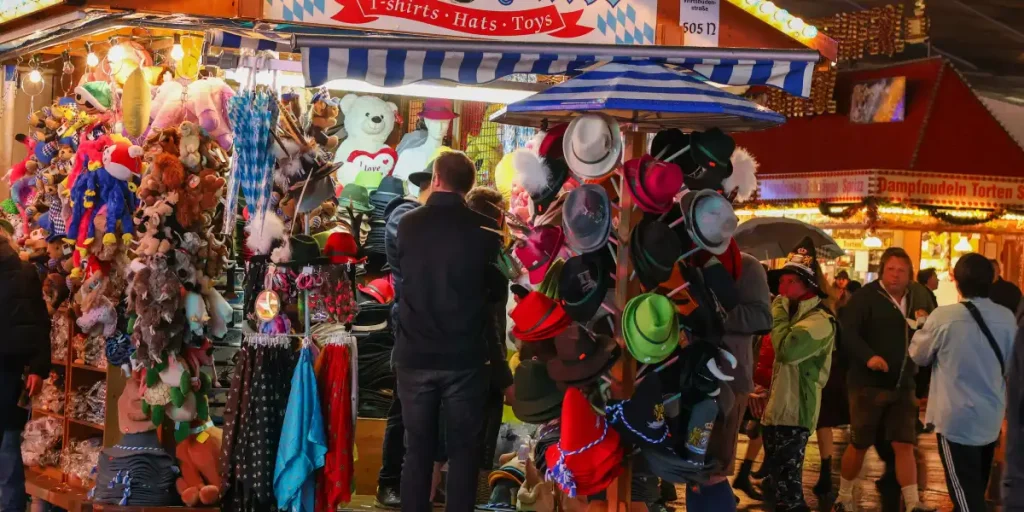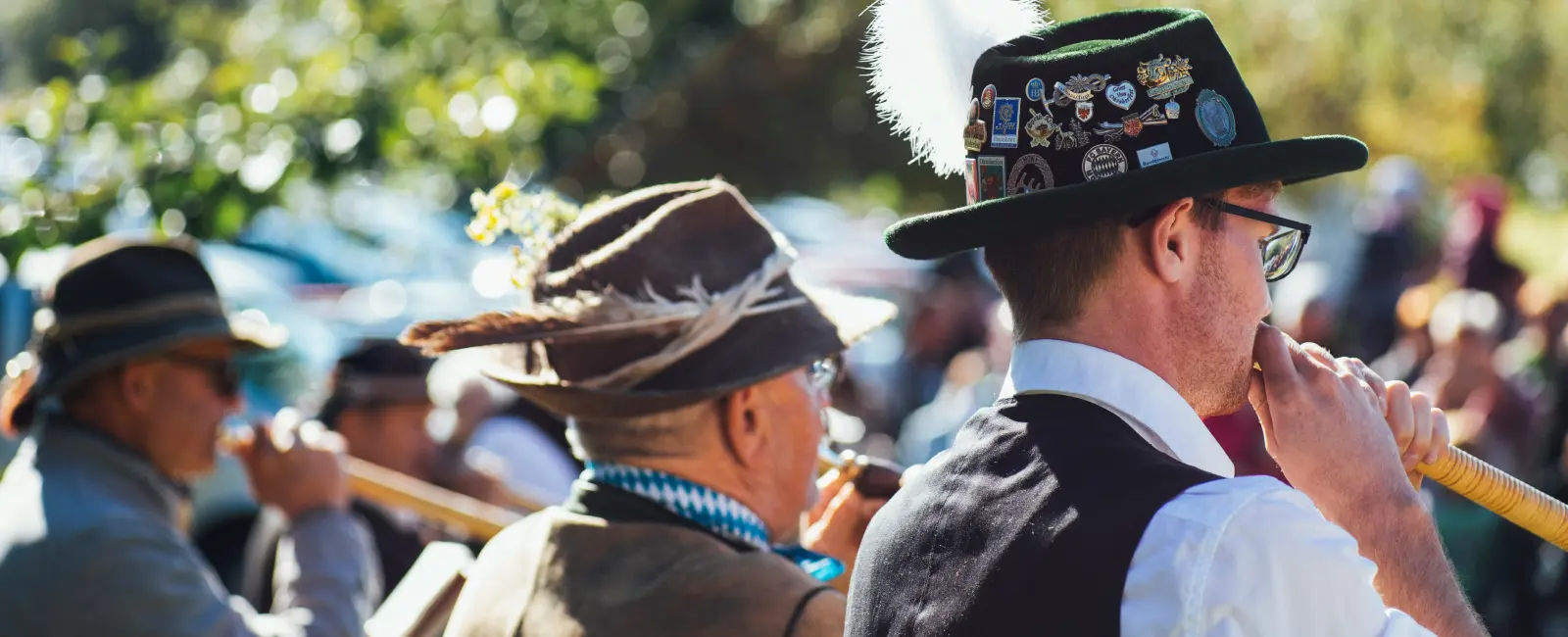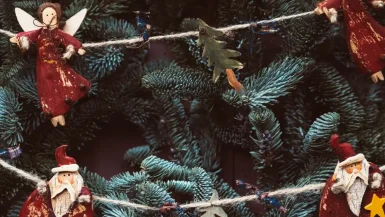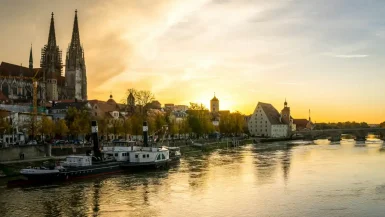Bavaria, located in southeastern Germany, is a region renowned for its rich culture and traditions. From vibrant festivals to delicious cuisine, Bavarian traditions reflect a deep connection to history and community. Visitors to this enchanting region often find themselves captivated by its stunning landscapes, charming villages, and welcoming atmosphere. The proud Bavarian people celebrate their heritage through various customs, including music, dance, and artisan crafts. Each town and village boasts its unique practices, showcasing the diverse tapestry of Bavarian life. Embracing a slower pace, many Bavarians cherish time spent with family and friends, reinforcing the value of community bonds. In this post, we will explore the essence of Bavarian culture, focusing on its traditions, customs, and the unique lifestyle of its people.
The Importance of Festivals
Bavarian traditions shine brightly during festivals. These celebrations bring people together to honor customs passed down through generations. One of the most famous festivals is Oktoberfest, held annually in Munich. This festival attracts millions of visitors each year. It showcases Bavarian beer, traditional food, and lively music.
During Oktoberfest, visitors can enjoy freshly brewed beer from local breweries. They can also savor traditional dishes like pretzels, sausages, and roast chicken. The festive atmosphere, filled with laughter and music, creates a sense of community. Attendees wear traditional attire, such as lederhosen for men and dirndls for women, further enhancing the cultural experience.
Another important festival is the Nuremberg Christkindlesmarkt, one of Germany’s oldest Christmas markets. It features charming wooden stalls filled with handcrafted goods, seasonal treats, and mulled wine. This market draws locals and tourists alike, fostering a warm holiday spirit. Bavarian traditions come alive during these festivals, showcasing the region’s unique heritage.

Culinary Traditions
Food plays a central role in Bavarian traditions. The region’s cuisine reflects its agricultural roots and cultural influences. Traditional Bavarian dishes often feature hearty ingredients. Popular meals include Weisswurst (white sausage), Schweinshaxe (pork knuckle), and various potato dishes.
Bavarian beer holds a special place in the culture. Local breweries pride themselves on using high-quality ingredients. Each beer has its unique flavor, influenced by the local water and brewing methods. Beer gardens, which are popular gathering spots, allow people to enjoy a drink in a relaxed atmosphere. They often feature traditional music and delicious food, making them a perfect place to experience Bavarian traditions.
When it comes to dessert, Apfelstrudel (apple strudel) reigns supreme. This pastry is filled with spiced apples and wrapped in thin dough. It represents the region’s commitment to using fresh, local ingredients. Bavarian traditions surrounding food emphasize community, family, and the enjoyment of good company.
Folk Music and Dance
Music and dance are integral parts of Bavarian traditions. Traditional folk music brings communities together, often played during festivals and gatherings. Instruments like the accordion, zither, and clarinet create lively melodies. These tunes invite people to dance, promoting a sense of joy and celebration.
The Schuhplattler is a traditional dance that showcases Bavarian culture. Dancers wear traditional costumes and perform rhythmic clapping and stomping. This dance often tells stories of everyday life, celebrating the joys and struggles of the Bavarian people. Local dance groups perform during festivals, allowing visitors to experience this vibrant aspect of Bavarian traditions.
Music and dance events occur throughout the year. Many towns host regular events, where locals gather to celebrate their heritage. These gatherings strengthen community bonds and keep Bavarian traditions alive.
Traditional Clothing
Traditional Bavarian clothing holds significant cultural value. The most recognizable garments are lederhosen for men and dirndls for women. Lederhosen are short leather trousers, often decorated with intricate embroidery. They symbolize Bavarian pride and craftsmanship.
Dirndls consist of a fitted bodice, a blouse, and a full skirt. These dresses vary in style, color, and design, reflecting regional differences. Women wear dirndls during festivals, weddings, and other celebrations. The clothing choices reflect a sense of identity and belonging among the Bavarians.
The way people wear these outfits can also convey information about their relationship status. For example, a woman ties her dirndl bow on the left if she is single and on the right if she is in a relationship. This tradition adds a playful element to Bavarian customs.
Arts and Crafts
Bavarian traditions are evident in the region’s arts and crafts. Woodworking, pottery, and textile production are common crafts passed down through generations. Artisans take pride in their skills, creating beautiful and functional pieces.
One notable craft is the creation of cuckoo clocks. These intricately designed clocks originate from the Black Forest region in Bavaria. Craftsmen carve delicate figures and mechanisms, making each clock unique. Cuckoo clocks represent the attention to detail and artistry found in Bavarian traditions.
Pottery also holds a special place in Bavarian culture. The colorful and decorative pieces often feature traditional motifs. These ceramics are not only functional but also serve as decorative items that tell stories of the region’s history.
Nature and Outdoor Activities
Bavarian traditions are closely tied to nature and outdoor activities. The region boasts stunning landscapes, including the Alps, lakes, and lush forests. People engage in various outdoor pursuits, such as hiking, skiing, and cycling.
Hiking trails wind through picturesque mountains and valleys. These trails allow locals and visitors to connect with nature while experiencing the beauty of the Bavarian countryside. Many people cherish the tradition of hiking during weekends, often enjoying a hearty meal at a mountain hut after their trek.
In winter, Bavaria transforms into a winter wonderland. Ski resorts attract adventure enthusiasts, offering slopes for all skill levels. Bavarians embrace the cold season with outdoor activities, celebrating the joy of winter sports.
Family and Community Values
Bavarian traditions emphasize family and community. People often gather for meals, celebrations, and outdoor activities. Family reunions and gatherings strengthen bonds and foster a sense of belonging. These gatherings often revolve around traditional food, music, and storytelling.
The sense of community extends beyond family. Bavarians often participate in local clubs and organizations, fostering connections among residents. Whether it’s a sports club, choir, or volunteer group, these associations create a supportive environment.
In rural areas, community events play a vital role in bringing people together. Harvest festivals, markets, and fairs celebrate local produce and crafts. Such events reflect the strong ties among residents and the importance of supporting local traditions.
Religious Influences
Bavarian traditions also reflect the region’s religious influences. Catholicism plays a significant role in shaping customs and celebrations. Many festivals honor saints, and religious processions are common. These events bring communities together and deepen their spiritual connections.
One significant event is the Oktoberfest, which begins with a traditional church service. This service blesses the festival and emphasizes the region’s faith and traditions. Religious influences can also be seen in local art, architecture, and music.
Bavarians often celebrate important life events with religious ceremonies. Weddings, baptisms, and confirmations involve traditional rituals that emphasize family and faith. These practices showcase the deep-rooted beliefs that shape Bavarian traditions.
Preservation of Traditions
As the world evolves, so do Bavarian traditions. However, locals remain committed to preserving their heritage. Many organizations work tirelessly to maintain traditional customs, crafts, and festivals. They offer workshops and educational programs, encouraging younger generations to embrace their cultural identity.
Traditional dance groups and music ensembles actively participate in preserving Bavarian folklore. These groups perform regularly, showcasing traditional songs and dances at festivals. They ensure that Bavarian traditions remain vibrant and relevant.
Additionally, cultural heritage sites and museums play a crucial role in education. These institutions provide insights into Bavaria’s history, art, and traditions. They serve as valuable resources for locals and visitors alike, promoting awareness and appreciation for Bavarian culture.
How to explore Bavarian traditions as a tourist
1. Visit Traditional Festivals
Immerse yourself in Bavarian culture by attending local festivals. Oktoberfest in Munich is a must-see, but also consider smaller festivals throughout the year, such as the Nuremberg Christkindlesmarkt or the various spring and summer fairs. Participating in these events allows you to experience traditional music, dance, and food, providing a genuine taste of Bavarian life.
2. Explore Historic Towns and Villages
Bavaria is home to charming towns that showcase its rich history. Visit towns like Regensburg, Rothenburg ob der Tauber, and Füssen, where you can wander cobblestone streets, admire medieval architecture, and discover local artisans. Each town has its unique stories and traditions, making them perfect for exploration.
3. Indulge in Bavarian Cuisine
Taste your way through Bavaria by sampling traditional dishes. Dine at local restaurants and beer gardens to enjoy classics like Weisswurst, pretzels, and schnitzel. Don’t forget to pair your meal with a local beer, brewed according to the Reinheitsgebot (beer purity law), which ensures high-quality ingredients. Explore regional specialties like Käsespätzle, a cheesy noodle dish, and roast pork served with crispy crackling. For dessert, indulge in Apfelstrudel or Black Forest cake, both bursting with flavor. Each dish tells a story, reflecting the local ingredients and culinary traditions passed down through generations. Enjoying these meals in their authentic settings enhances the overall experience, making every bite memorable.
4. Experience Folk Music and Dance
Attend local performances of traditional folk music and dance. Many towns host events featuring live music, where you can enjoy performances of the Schuhplattler and other regional dances. Join in the fun and learn a few steps yourself; it’s a great way to connect with locals and embrace Bavarian culture. These lively events often take place in town squares or beer gardens, creating a festive atmosphere. Dancers typically wear colorful traditional costumes, adding to the visual spectacle. Engaging with the music and dance fosters a deeper appreciation for the region’s heritage. Plus, it creates lasting memories and friendships that enhance your travel experience.
5. Participate in Workshops and Classes
Engage in hands-on experiences by joining workshops that teach traditional Bavarian crafts. From pottery and wood carving to baking pretzels, these classes provide insight into local skills and traditions. Not only will you learn something new, but you’ll also create a unique souvenir to take home.
6. Visit Museums and Cultural Institutions
Explore Bavaria’s rich history by visiting museums dedicated to its traditions and culture. The Bavarian National Museum in Munich offers insights into the region’s art and history. Local folklore museums also provide a glimpse into the customs, costumes, and everyday life of Bavarians through the ages.
7. Join a Guided Cultural Tour
Consider taking a guided cultural tour focused on Bavarian traditions. Knowledgeable guides can provide in-depth explanations and stories about local customs, helping you understand the significance of each tradition. Tours may cover various aspects, including food, history, and crafts.
8. Experience Nature and Outdoor Traditions
Bavaria’s stunning landscapes offer numerous opportunities for outdoor activities. Hiking in the Alps, cycling along scenic routes, or skiing in the winter allows you to appreciate the region’s natural beauty. Many outdoor traditions revolve around communal activities, reinforcing the strong bonds among the Bavarian people.
9. Attend Religious Celebrations
Experience Bavarian spirituality by attending local church services and religious celebrations. Many towns have unique customs tied to their religious heritage, especially around holidays like Christmas and Easter. Observing these traditions provides insight into the spiritual side of Bavarian culture.
10. Engage with Local Communities
Finally, take the time to engage with local communities. Whether you’re joining in on a village event or simply striking up a conversation with a local, these interactions deepen your understanding of Bavarian traditions. Many people are proud to share their heritage, making for memorable experiences.
By exploring these topics, tourists can fully immerse themselves in Bavarian traditions, gaining a deeper appreciation for the culture and lifestyle of this vibrant region.
Conclusion
Exploring Bavarian traditions reveals a rich tapestry of culture, community, and history. From lively festivals to delicious cuisine, these traditions create a unique identity for the region. The emphasis on family, community, and nature fosters a deep sense of belonging among the Bavarians.
As you explore Bavaria, immerse yourself in its vibrant culture. Attend a festival, taste traditional dishes, and engage with the locals. These experiences will enhance your understanding of Bavarian traditions and leave you with lasting memories. Whether you’re hiking in the Alps or enjoying a beer in a garden, Bavarian traditions invite you to celebrate life and community.



